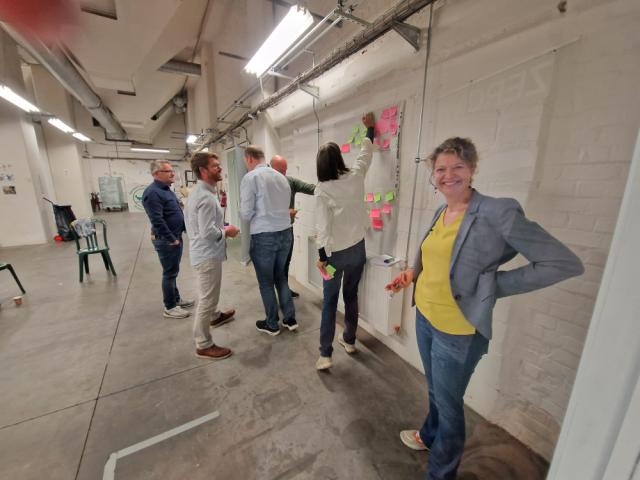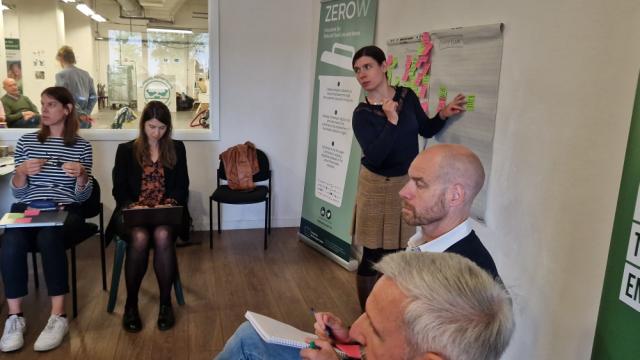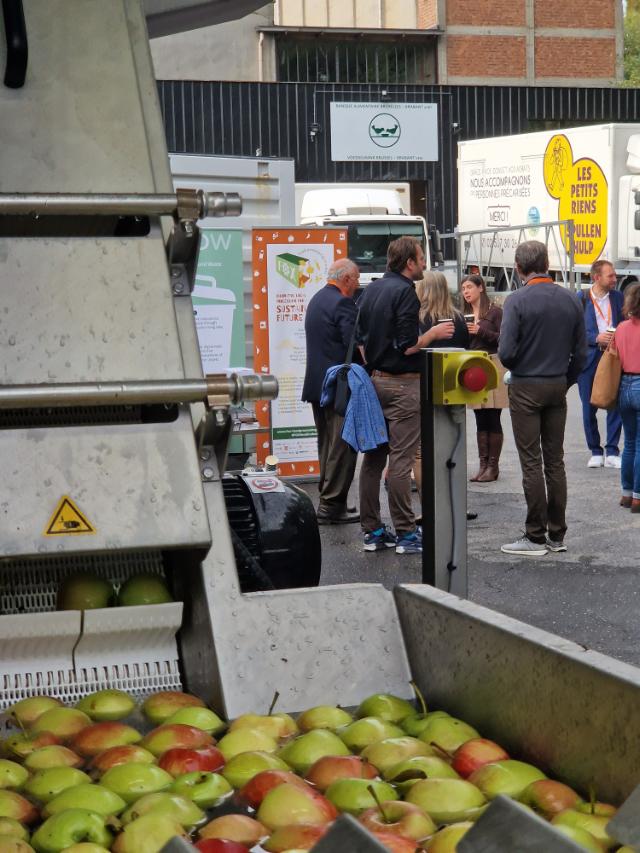First stakeholder workshop yielded valuable insights for scaling up the fight against food loss and waste
All ZeroW innovations are supported to ensure the scalability of their solutions. This is done via regional stakeholder workshops where experts provide their input on the bottleneck dimensions of each pilot. The first workshop took place in Brussels 25/09 and yielded very valuable insights.
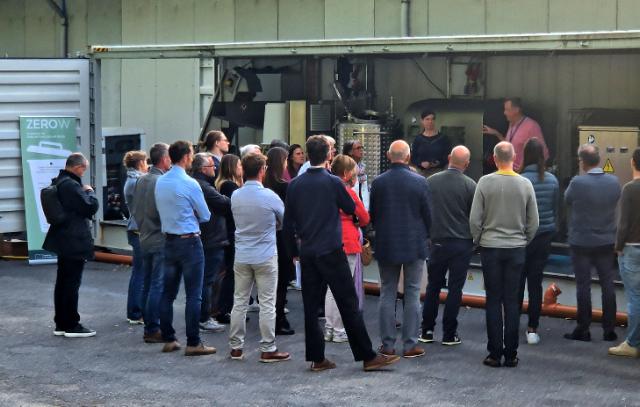
Food loss and waste is one of the wicked problems we face as society, a problem that requires coordinated actions from several actors and innovations that are not solely focused on a new technology. If we want to tackle food loss and waste, we will need to ensure that we develop innovations that are ready to scale at behavioral, legal, business and supply chain level. That is why the ZeroW pilots monitor and evaluate their solutions across these different dimensions using the Systemic Innovation Readiness Level Assessment tool.
Based on this evaluation we can direct our efforts to further develop the pilots focusing on their bottlenecks. This is done by involving external actors with expertise in those dimensions that are least developed. During regional stakeholder workshops we will present the solutions that we are developing and ask experts to identify conditions that would foster or hamper its further development.
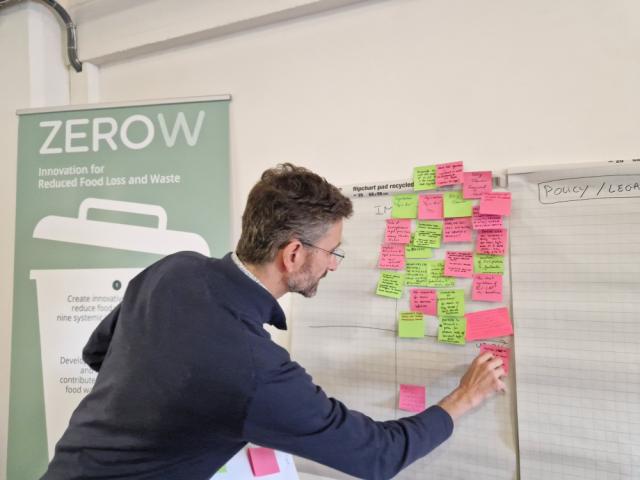
Stakeholder workshop in Brussels
The first external stakeholder workshop took place in Brussels at the FoodBanks ‘Brussel Brabant’ on the 25th of September. The focus was on pilot 4 ‘mobile food valorization as a service’ and pilot 7 ‘Efficient food bank networks’. We invited policy makers, social entrepreneurs currently working with food surpluses, representatives from food banks, fruit processing companies, retailers, auctions, and farmer organizations.
A lot of surplus fruit and vegetables are currently re-processed as animal feed or bio-energy because there is no way of re-using them for human consumption. The mobile food valorization as a service wants to provide a solution for this. However, there are some legislative and marketing challenges that need to be overcome and these were the topic of the workshop. We learned a lot, about existing policy to stimulate food donations but also about opportunities to provide even more policy incentives for donations. The donation of food surpluses needs to be controlled and monitored, this is straightforward in the case of fresh fruit and vegetables but how to handle this for processed fruit and vegetables? The ZeroW project can provide support to develop these procedures, thus paving the way for donating much more peak surpluses and processing them into healthy juices or soups. From the business side, a resilient and economically viable business model must be identified to persuade potential investors to implement and scale up the use of the unit. For this, a suitable value chain must be found wherein the unit fits. With this in mind, the stakeholders advised to search for a high-end premium market, wherein the health and freshness aspect of the juices produced in the unit is being exploited. Consequently, the mobile aspect may become less relevant, at least in the context of local scale up, and rather the versatility of the output products should be emphasized.
Making food banks more efficient is another way of reducing food waste and at the same time reducing hunger. Pilot 7 focuses on developing tools to support food bank in this endeavor. Our stakeholders contributed to this pilot with ideas for improving the existing legislation on this topic to stimulate retailers to donate more and faster. They also highlighted the need for transparent and bidirectional or even open data sharing as a key condition for real-life success of the supply- and demand prediction tools. A major limitation seems to be the inevitable disbalance between demand for food aid, which is rather constant, on the one hand, and supply of food surpluses, which is highly volatile, on the other hand. The pilot 7 tools should advise the most efficient and ethical ways to cope with this unbalance. Lastly, the models should not forget to take into account the infrastructural limitations (e.g., logistical capacities, refrigerator room) that many food banks face.
We are very grateful to all the stakeholders that provided their input, this will help us to focus the work of the pilots in the coming months and years. We are also very grateful to the Foodbank Brussel Brabant where our mobile container is currently operating and who hosted this workshop. The work of many volunteers there is invaluable, and we hope to help them in their long-term mission of reducing hunger while reducing food waste.
Want to follow up on all our pilots?
If you want to know more about our pilots, we invite you to join the Zero FLW Business Ecosystem.
This is a network for organisations with commercial insight who are interested in discussing and supporting spin-offs, innovative ideas, and business opportunities related to FLW.
See more photos from the Stakeholder Workshop
